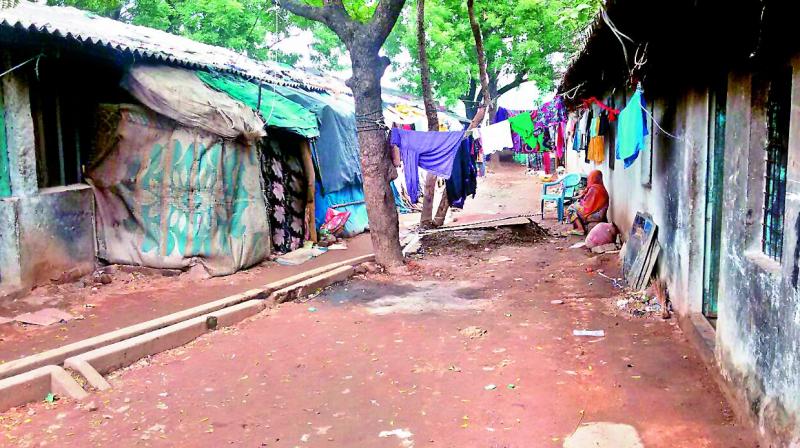2 Rohingyas in terror cases
The two policemen included Ahmed, a constable, and S.K. Saleem, a home guard, both working with the Special Branch here.

Hyderabad: Police says the security concerns expressed by the Centre with to Myanmar refugees staying in the country cannot be brushed aside. Police points out that Myanmar nationals were involved in two cases, both of them linked to terror.
In November 2014, the National Investigation Agency (NIA) arrested a Myanmar national, Mohammed Khalid alias Khaleed, from the Balapur settlement in the city for his alleged connection to the Bardhaman, West Bengal, blast case.
Khaleed had been trained at a terror camp organised by Tehreek-e-Azadi Arakan, the NIA had claimed. The NIA had alleged that Khalid was part of a Rohingya solidarity organisation and had links with Bangla-desh-based terror groups.
In another case in 2015, nine persons including two policemen were arrested for allegedly arranging Indian passports for Myanmar nationals.
The two policemen included Ahmed, a constable, and S.K. Saleem, a home guard, both working with the Special Branch here.
The prime accused, th-ough, was one Mohammed Nasir, a Pakistani national having links to terror outfits. Three of Nasir’s associates were arrested.
Myanmar national Zia Ur Rahman along with Faizal Mohamoud and Zianul Abedin, both Ban-gladesh nationals, and three local agents Ansari, Mohammed Masood Ali Khan and Sohail Parvez Khanwere also arrested.
Mohammed Nasir had reportedly managed to get fake Indian passports for many Myanmar nationals through his contacts in the Special Branch and sent them to Saudi Arabia on visit visas.
The police are still clueless as to why the Myanmar nationals had gone to Saudi Arabia with the help of those who had terror links.
Police said Nasir and Zia-ur-Rahman had helped Pakistani national Waqas (who was recently awarded death sentence in Dilsukhnagar twin blast case) cross over into Bangladesh in 2014.
“Following the two terror related cases, we are regularly keeping a watch on Rohingya settlements. They are staying at Asadbabanagar and Hafeezbabanagar. The In-telligence Bureau periodically issues us advisories and we follow them diligently,” DCP (South) V. Satyanarayana said.
The Rachakonda police monitors their activities. “We monitor their activities and do not interfere with the day to day affairs of the Rohingyas unless we sense something suspicious. We have a record of all those who are staying in the settlements,” said a police official.
Rohingyas in Balapaur battle surviving in ghettos
A stream of drain water flows through the ‘kacha’ road leading to the Rohingya settlements in the Royal Colony at Balapur. Since five years the colony is known among locals for its ‘Burmawaleh logah’ (Myanmar nationals) who crossed two borders and found their way to the city.
“We came five years ago and are happy that we can stay here without fear. Though our earnings are meagre we manage with it,” says Noorul Ahmed, who lives along with his wife and four children. His children study at a local madrasa which imparts free education to refugees.
The settlement has several camps with 20 to 25 dwellings each and has come up on open plots owned by affluent people who have constructed small 10x10-foot-sized rooms and rented it out. Of the seven camps here a few have asbestos rooms while at some other camps the refugees themselves have put up huts. The families pay rents between '900 and '1,200 a month.
“Before the trouble in Myanmar our situation was comparatively better. Somehow we crossed over into India and are staying here,” says a woman who picked up the local language.
The Balapur and adjoining Hafeezbabanagar localities were the first destination for the refugees in Hyderabad. Later on they moved to Kishanbagh and MM Pahadi.
“In Kishanbagh, they are staying in small one roomed houses on the banks of the Musi and earn their livelihood by doing menial jobs,” says Mazher Hussain, executive director of COVA.
Prasahanthi Bathina, a project coordinator from Save the Children, the NGO working in the Rohingya settlement, says that the number of children here are high.
“We run a preschool for children below six years. The elder children are admitted in a private school. The children are malnourished. So we organise check-ups and conduct immunization camps,” she explained.

